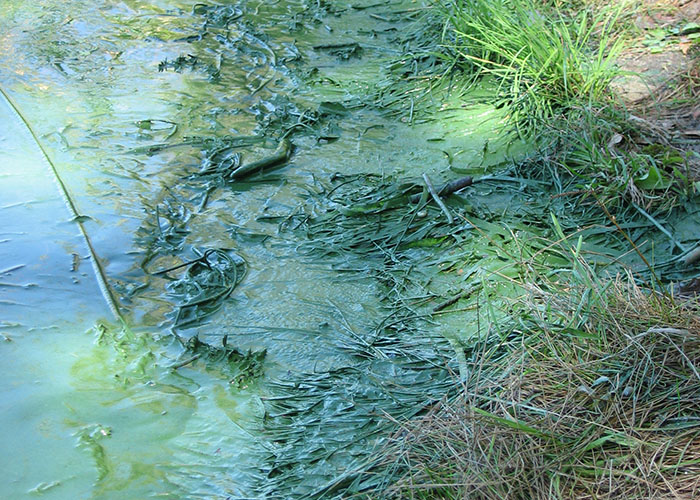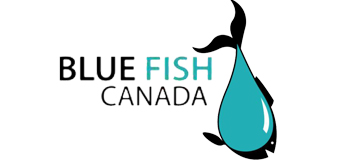Blue Fish News – April 12, 2021
In this April 12, 2021 issue of the Blue Fish Canada News, we begin with a focus on Lake of the Woods, the unofficial 6th Great Lake. As always, we include a specially curated list of summaries and Links to timely fishing, fish health, water quality and other news. We are also giving readers advanced access to a special Blue Fish Radio episode featuring Alexandra Morton discussing her new book “Not On My Watch”.
SPECIAL ANNOUNCEMENT – Join Blue Fish Canada on April 15 at 7:00 p.m. est for the premier web streaming of the Canadian documentary What Lies Below. Follow Lawrence Gunther and his guide dog as they reveal ten stories impacting water, fish, and diverse Canadians who live by and from the water. Discover what is truly taking place out-of-sight beneath the surface of Canada’s many rivers, lakes and oceans.”
Link here to watch the trailer https://youtu.be/NHQbuECriog and
Link here to set a reminder for April 15, 7: p.m. EDST.

This Week’s Feature: Lake of the Woods – the Unofficial 6th Great Lake
Many consider Lake of the Woods to be the hidden jewel of western Ontario. With it’s 4,349 sq. km. of surface area measuring 94 km by 109 km, and reaching depths of 64 meters, some even consider it to be a Great Lake given that it’s the 6th largest lake located either fully or partially within the United States.
The lake’s primary inputs include the Rainy River, Shoal Lake, and Kakagi Lake. According to the Rainy-Lake of the Woods: Tour of the Basin Map Journal, the lake’s watershed encompasses 69,750 sq. km. of mostly water-covered ten distinct basins. These watersheds begin with the lake’s headwaters near Lake Superior and stretch all the way north to the lake’s outlet at Kenora Ontario, where it drains into the Winnipeg River and ultimately into Lake Winnipeg itself.
It’s 14,522 islands are situated mainly in the lake’s shallower southern end. At the northern Canadian shield tip of the lake are the lake’s deeper colder bays. This dual personality makes Lake of the Woods a truly bountiful and diverse lake with fish species that include walleye, northern pike, perch, sauger, crappie, smallmouth and largemouth bass, lake trout, lake sturgeon, whitefish, suckers, and it’s famed prized muskellunge.
Numerous watersheds and lakes straddle the Canada / U.S. border. However, binational status can introduce significant issues for assigning responsibility to resolve issues. In the case of Lake of the Woods, this includes addressing the lake’s excessive algae blooms. Sorting out jurisdictional issues is where the century-old International Joint Commission (IJC) comes into play.
The Lake of the Woods Water Sustainability Foundation, in partnership with the Lake of the Woods District Stewardship Association, are two of the primary drivers behind the push to put the issues impacting Lake of the Woods on the agenda of the IJC and numerous government departments. Environment and Climate Change Canada has now released ecosystem objectives for reducing phosphorus. What is still to be determined is how these objectives will be met on Canada’s side of the border – Minnesota is already moving ahead with their reduction strategies.
According to Todd Sellers, Executive Director of Lake of the Woods Water Sustainability Foundation, it’s taken 15 years of hard work at the grass-roots level to get governments to take the lake’s algae situation seriously. While it’s still too soon to claim success, it doesn’t mean little has been accomplished. Link below to hear Todd Sellers discuss the multi-layered personality of Lake of the Woods, its water quality and fish health challenges, and the machinery of numerous governments now activated to address the lake’s issues on The Blue Fish Radio Show:
https://bluefishradio.com/todd-sellers-on-lake-of-the-woods-algae-and-fish-sustainability/
Interested in knowing more or getting involved in Lake of the Woods issues? Take part in two up-coming April 14 online webinars. Or, submit your comments on Environment and Climate Change Canada’s targets for reducing harmful algae by April 30. To register for the April 14 Lake of the Woods workshops with special guest Environment and Climate Change Canada, visit: www.LOWWSF.com
To learn more about what ECCC is doing and to submit your concerns and recommendations about the lake’s water quality and fish health before the April 30 deadline visit: www.placespeak.com/lakeofthewoods
The Latest Fishing, Fish Health and Water Quality News
Fishing:
Musky Odyssey April 17-18 — See detailed schedule here
If you love Muskie fishing in Canada, you won’t want to miss this blockbuster virtual event. April 17 – 18 Muskie Canada Inc. will showcase the best of Canadian Muskie waters and how the organization is working hard to help these great fisheries. Muskie destinations will be featured such as: Sunset Country and Lake of the Woods; Georgian Bay, Lake Nipissing and the French River; the Kawarthas Lakes; Lake St. Clair; the Ottawa and St. Lawrence Rivers; even the newest Big Muskie waters of New Brunswick.
Podcast – Selective Pacific Salmon Harvesting and Tagging Innovations / Blue Fish Radio
Peter Krahn is a professional chemical/environmental engineer with 38 years experience specializing in forensic criminal environmental investigations. Now retired, Peter is developing a selective fishing technology for sustainably harvesting salmon to replace destructive gill nets. It supports scientific data collection, and supports selective harvesting, the removal of invasive fish species, and the release of wild fish. Listen to Peter Krahn and Dave Brown from the Public Fishery Alliance on The Blue Fish Radio Show.
AHEIA’s Alberta Fishing Education Program is currently FREE! / Alberta Conservation Association
Looking to become an angler in Alberta? This course offers a comprehensive fishing education experience, all from the comfort of your home! Learn all about fish identification, fishing equipment and techniques, preparing and cooking your catch, and much more!
Recreational anglers required to immediately record catch / Powell River Peak
Recreational fishing licences for tidal waters in the Pacific region went on sale April 1. Under regulations in the tidal waters sport fishing licence, recreational anglers are required by law to immediately and permanently record their catch on their licence or an FOC-kept catch database for all retained chinook and halibut caught in any management area, and lingcod caught in specific areas. They can now do this digitally under FOC’s national recreational licencing system (NRLS).
Ohio Lake Erie Perch Limit to Drop to 10 / Fishing Wire
A declining population of Lake Erie yellow perch in the central basin has prompted a reduction in the daily limit to 10 from Huron to Fairport Harbor beginning May 1, 2021.
‘Forever chemicals’ in Lake Superior smelt results in new advisory on consumption / TBNewsWatch.com
THUNDER BAY — The discovery of harmful chemicals in Lake Superior smelt has resulted in a new consumption advisory from two U.S. states. Minnesota and Wisconsin are both telling people to eat no more than one meal of smelt per month. Ontario’s recommended limit for the northwestern part of Lake Superior ranges from four to 16.
Grass Carp: Interesting and Unusual Gamefish / Fishing Wire
Any grass carp caught in Florida must be released immediately – but they’re interesting and unusual gamefish for catch and release.
Fish:
St. Lawrence muskie population threatened by invasive gobies / Ottawa Citizen
“This is like having the New York Yankees disappear from baseball. This is the greatest fish franchise in history. Those are the biggest, baddest muskies on the planet” says Ottawa River muskie guide John Anderson
Friends of the Thousand Islands Biological Station / Save the River
Save The River Upper St. Lawrence Riverkeeper is pleased to announce the launch of ESF’s Friends of the Thousand Islands Biological Station’s webpage. Save The River and Thousand Islands Biological Station (TIBS) have been working together for many years on environmental issues affecting the Upper St. Lawrence River, including sponsoring the Dan Tack Muskie Catch and Release Tournament. Hundreds of legal sized muskie have been returned to the River after being weighed and measured by area fishermen and guides, contributing to TIBS’s knowledge of this apex predator.
Canada declares fish fraud crackdown but leaves out restaurants / The Guardian
New study released after Guardian Seascape investigation shows drop in seafood mislabelling, but campaigners argue it uses less strict methodology. In its latest report, released on 24 March, the Canadian Food Inspection Agency (CFIA) said only 8% of the seafood it had sampled in the past two years was mislabelled, after new investments in food fraud reduction.
Atlantic cod rebuilding plan undermines scientific evidence and Indigenous Knowledge / The Narwhal
Fisheries and Oceans Canada’s roadmap to save critically depleted Atlantic Cod fails to address overfishing and climate change, while blaming ‘natural causes’ for population decline.
Fisheries Biology: The Life of a Lake / Fishing Wire
Categorizing lake types involves understanding the life stages individual lakes pass through. Understanding these phases is crucial to determining a lake’s productivity and fish sustainability.
Fish farms and conservationists tussle over transfers in court / National Observer
An environmental coalition is in court to prevent salmon farm companies from securing a ruling to allow the transfer of 1.2 million fish to sites in the Discovery Islands this summer, despite a federal ban on restocking the farms.
Podcast – DFO Scientist Speaks out on Aquaculture / Mi’kmaq Matters: Episode 174
Federal stock assessment biologist Nick Kelly, based at DFO’s Northwest Atlantic Fisheries Centre in St. John’s, joins the Mi’kmaq Matters podcast and tells host Glenn Wheeler it’s naïve to ignore the role of aquaculture in South Coast Atlantic salmon declines and that stocking more fish in affected rivers is not the solution.
Decades of cuts to salmon monitoring leave BC scientists uncertain of fish populations / The Narwhal
Only 215 of 2,500 salmon spawning streams (less than 10 per cent) on B.C.’s central and north coast are being monitored by creekwalkers, the people who count salmon one by one. Critics say this leaves a critical gap in knowledge that could further imperil the species.
“Quite the catch”: Removing invasive bass requires delicate balance / Canadian Geographic
Rotenone was applied in Nova Scotia’s Piper Lake, part of the St. Mary’s watershed, to remove invasive smallmouth bass. Illegally introduced, the bass jeopardized a major salmon restoration program for the watershed.
Salmon Eggs Hatching – Live on YouTube / ASF
A YouTube livestream of Atlantic salmon eggs being hatched as part of a New Brunswick Fish Friends program. Check back from time to time to follow developments.
5 ways fish are like you and me / EarthSky
Fish seem unlike us. They don’t speak aloud or have facial expressions. We and fish don’t even breathe the same air. But scientists who’ve studied fish – including their neurobiology, social lives, and mental faculties – say they’ve found time and time again that fish are more complex than we’ve realized. In fact, fish may have more in common with humans than we might like to admit. Here are 5 examples.
DFO under scrutiny for aquaculture impacts on wild salmon / ASF
NTV focused attention on how DFO has failed to research fully the impacts of open net-pen salmon on wild Atlantic salmon runs. This is as Conne River runs are at historic lows.
Water:
Teck Fined $60 million for Contaminating BC Rivers / CBC News
Canadian mining company Teck Coal has been assessed $60 million in fines for contaminating waterways in southern British Columbia, the largest penalty ever assessed under the Fisheries Act.
Washington legislators call on B.C.’s Premier to better regulate mines threatening international rivers / Financial Post
The letter points out that there are at least a dozen operating mines or mining exploration projects in the headwaters of rivers that flow from B.C. into Washington state.
Indigenous:
B.C. First Nations, Fisheries and Oceans Canada protect crab for Indigenous food, social and ceremonial purposes / The Narwhal
In a landmark decision, an agreement has been reached to close 17 Dungeness crab harvest sites on the central coast to commercial and recreational fishing.
Scientists, First Nations team up in fresh attempt to revive struggling B.C. herring stocks / CBC News
Commercial fisheries have been cut back while scientists and First Nations attempt to bring them back to some areas by transplanting fertilized herring eggs.
Climate Change:
Climate Change Raises Risk of Prey Mismatch for Young Cod in Alaska / NOAA
For a young Pacific cod, first feeding is a life-or-death moment. Cod larva are nourished by a yolk sac after they hatch. Once the yolk sac is depleted, they must find food within days to survive. If there is no prey available during that critical window for first feeding, young fish face starvation.
Anglers and Boaters Support Offshore Wind Development / Fishing Wire
From boat enthusiasts to anglers, researchers found surprisingly widespread support with close to 77% of coastal recreation visitors supporting potential offshore Wind development along the New Hampsure Seacoast.
Industry:
Shimano Varsity Scholarships Return for 2021 / The Fishing Wire
If you’re passionate about the sport of fishing and are training for a career in fisheries biology and management, then you are invited to apply to a unique scholarship program, created through a partnership between Shimano North America Fishing and the conservation arm of B.A.S.S.
”It’s at our core”: new report underlines Costa’s commitment to conservation / Angling International
International eyewear brand Costa is celebrating more than 38 years of protecting the environment with the release of its first-ever Protect Report which highlights its achievements over three-plus decades. These include supporting coastal communities, cleaning coastlines and waterways, eliminating single-use water bottles and much more.
Simms CEO: newcomers will need educating / Angling International
Simms new CEO Casey Sheahan says gains in numbers of new fly fishers will be lost if rivers are not respected. We need to take care of and respect this environment, or people will be turned off. We need to welcome newcomers but spread the message of how to take care of the resource. One pet peeve of mine is people holding fish out of the water for an Instagram post. That stresses the fish. We need to tone it down and keep the fish in the water.
Boating:
BRP to Introduce Electric Models By 2026 / Fishing Wire
BRP announced its five-year plan, which will offer electric models in each of its product lines by the end of 2026.
Boat Builders Struggle to Fill Back Orders / Fishing Wire
2020 was both a historic year for retail boat sales and a disruptive year for boat builders working to meet the heightened demand and replenish record low inventories amid challenges caused by the COVID-19 pandemic.
New Lower Cost Electric Outboard from Torqeedo
The two-horsepower-equivalent, direct-drive, short shaft motor is the lightest in its power class, weighing just 15.5 kg (34 lbs.) complete, including battery.
Brunswick Corporation announces major expansion of its iJet Innovation Lab / Fishing Wire
Brunswick Corporation today announced a major expansion of its iJet Innovation Lab at the University of Illinois to support an acceleration of the Company’s ACES (Autonomy, Connectivity and Electrification) strategy and vision to use technology and design to enhance the recreational boating experience.
Arts:
Seaspiracy Harms More Than It Educates / Hakai Magazine
The appeal of the Netflix hit is that it suggests there’s one solution to the ocean’s woes. That’s not true. A marine ecologist explains.
Special Feature: Interview with Alexandra Morton on her new book “Not on My Watch”
Dr. Alexandra Morton has dedicated her life to researching and understanding B.C.’s complex and interconnected coastal ecosystems. Her new book “Not On My Watch” chronicles Alexandra’s effort and ultimate fight to get the truth out about the ruinous impacts of open pen salmon farming on wild pacific salmon. Her commitment to conduct science in the face of overwhelming opposition, and to speak truth to those in power bent on silencing her voice, is not only turning the page on an exploitative and destructive industry but serves as a shining example of what it means to put nature first. Link below to hear what Alexandra Morton sacrificed personally and professionally on The Blue Fish Radio Show: https://bluefishradio.com/not-on-my-watch-with-alexandra-morton/
About us:
Subscribe to receive the Blue Fish Canada news in your inbox.
Read back issues of the Blue Fish Canada News
Please rate The Blue fish Radio Show on Apple Podcast.
Email us your news or podcast story ideas.
Donate to Blue Fish Canada, a federally incorporated registered Canadian charity.
 Blue Fish Canada/Poisson Bleu Canada
Blue Fish Canada/Poisson Bleu Canada
